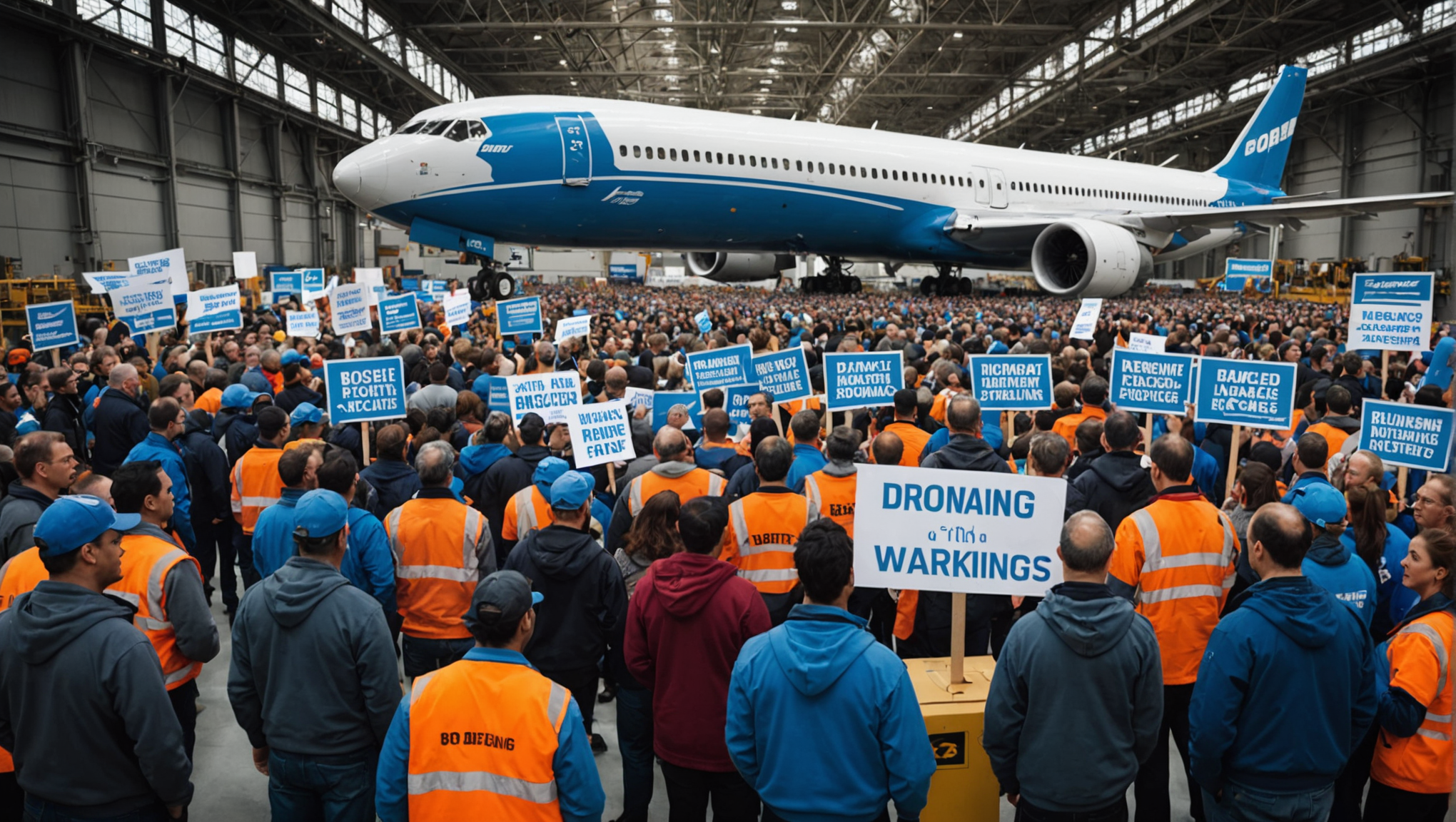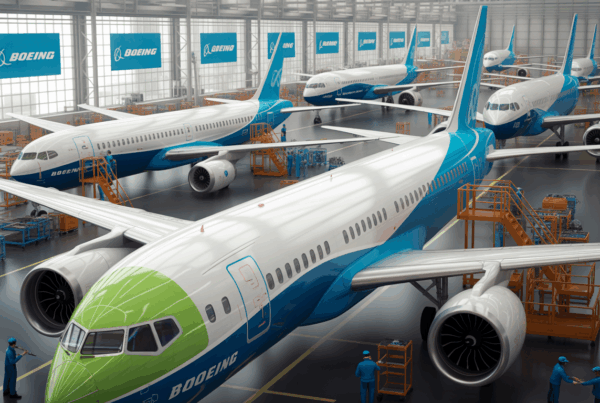At Boeing, more than 33,000 workers in the United States, mainly in the Seattle area, have triggered a strike on a large scale. Talks of a wage increase were relaunched on Monday after the rejection of a 30 % over four years, deemed insufficient by the international machinists' union. Demands also include job guarantees and the introduction of a retirement. Management had proposed a $3,000 bonus and a general increase of 25 %. The workers are protesting against the consequences of the financialization of the group.
Boeing employees, who have been on strike since mid-September, are to relaunch talks this Monday on an inadequate 30 % wage increase proposal. The aircraft manufacturer, already facing increased financialization, is facing growing opposition from its employees, backed by the strong union system of the United States. A crucial issue that could influence other sectors and regions.
Negotiation process
The strike, initiated by theInternational Association of Machinists and Aerospace Workersrepresents over 33,000 workers in the Seattle area. The movement was prompted by the company's rejection of a wage proposal, which it described as "an unfair offer". not far enough "by the union. Initially, the proposed agreement included a general increase of 25 % salaries, a bonus for 3,000 dollarsand Boeing's commitment to two new financial benefits.
Points of disagreement
One of the points of tension in the discussions is Boeing's proposal for a 30 % increase over four years, which does not meet workers' expectations. The unions are demanding not only a 40 % increase, but also job guarantees and a comprehensive pension plan. These demands reflect a general mistrust of Boeing's strategy, marked by a excessive financialization operations.
International context
The economic situation at Boeing is part of a wider context of social unrest, with several sectors experiencing similar crises. The company's historic strike reflects employees' growing distrust of management. At the same time, strike action is affecting a wide range of sectors, from the aeronautical industry to airline pilots. Norwegian Air.
Impact on World Aviation
The consequences of this strike at Boeing may have repercussions on the the world's aerospace industry. Boeing will have to re-evaluate its salary strategy to avoid amplifying disruptions to its production lines, which could lead to delays in aircraft deliveries and affect its commercial partners around the world. At European level, other strike actions, notably at Belgium or to IsraelThese are just a few examples of the globalization of social demands in the airline industry.
Future of Negotiations
This Monday, discussions between Boeing management and unions will continue in a climate of uncertainty. increased tensions. The stakes are high for Boeing, not only in terms of its employees, but also in terms of its position on the global market. Unions are on the lookout for significant concessions, and the outcome of these talks could set the tone for future wage negotiations in other industrial sectors.




